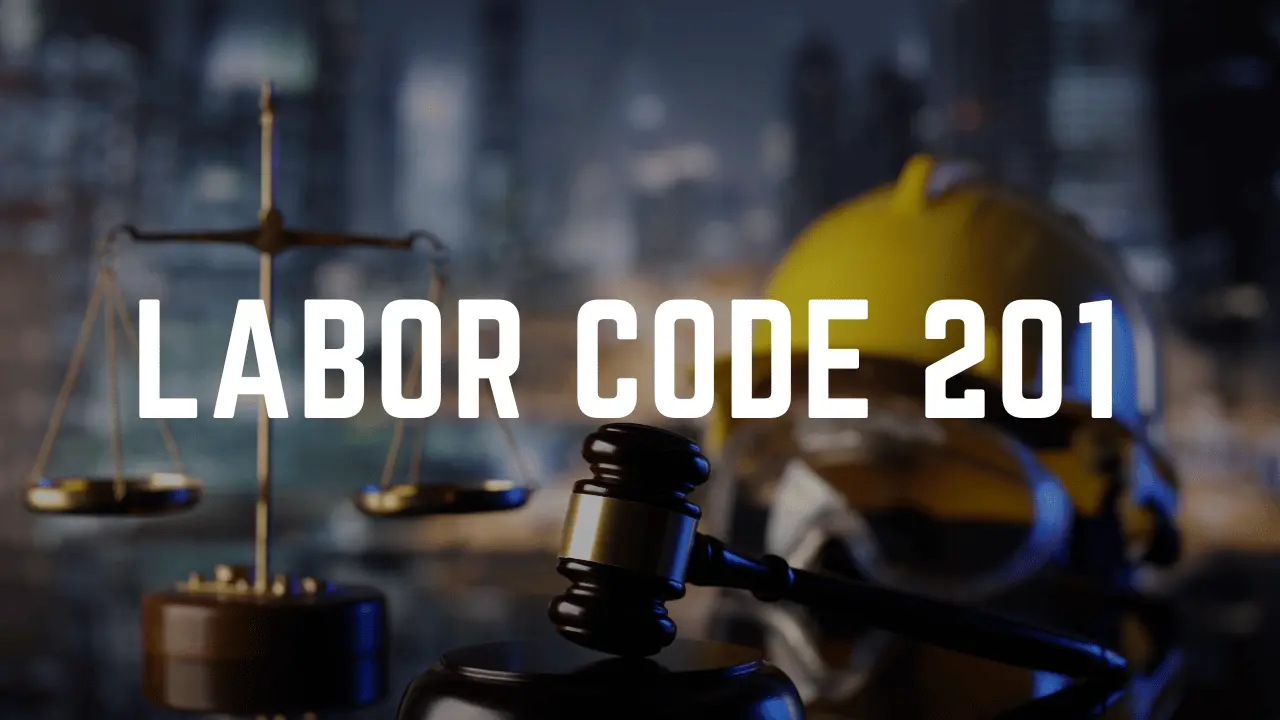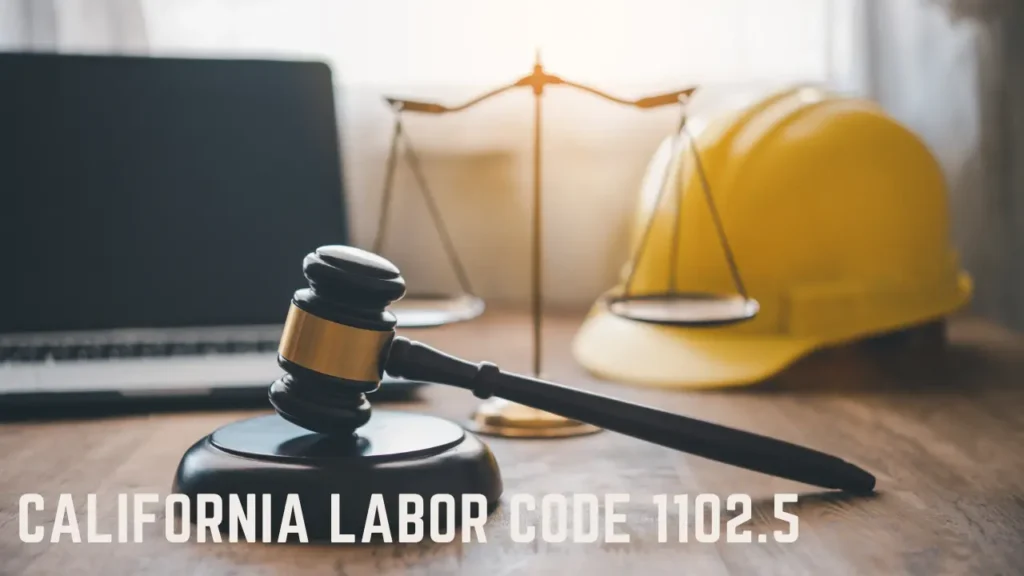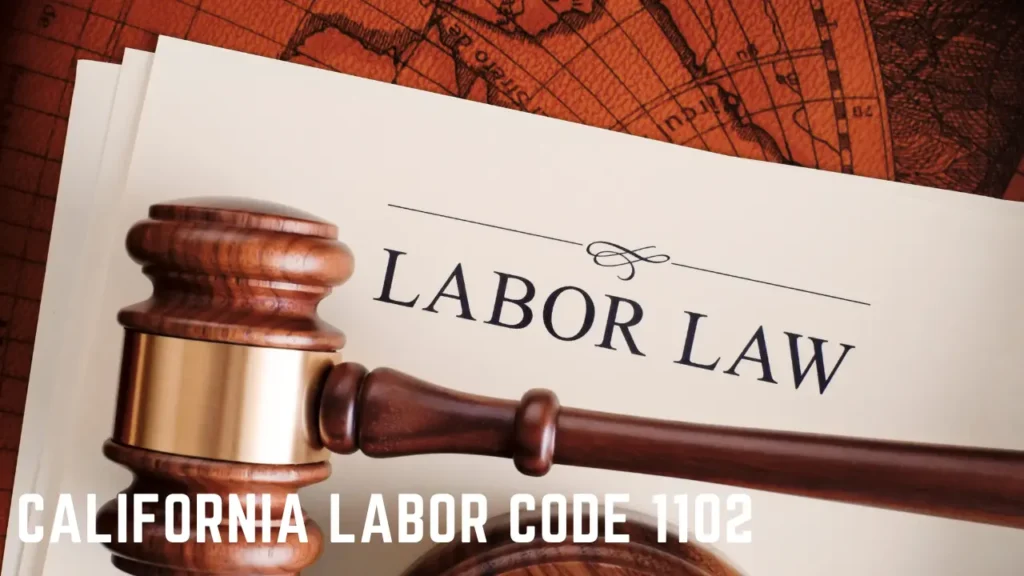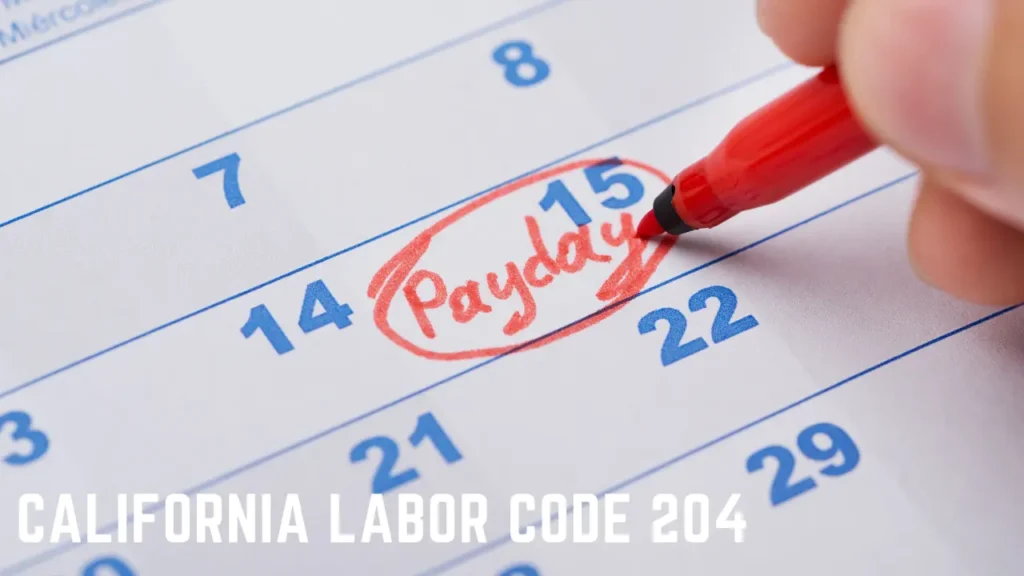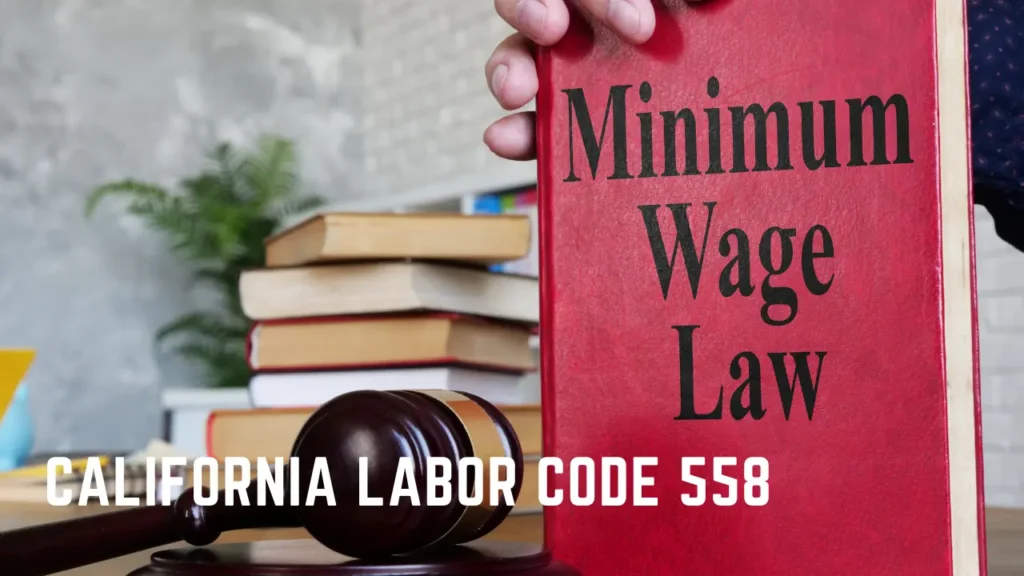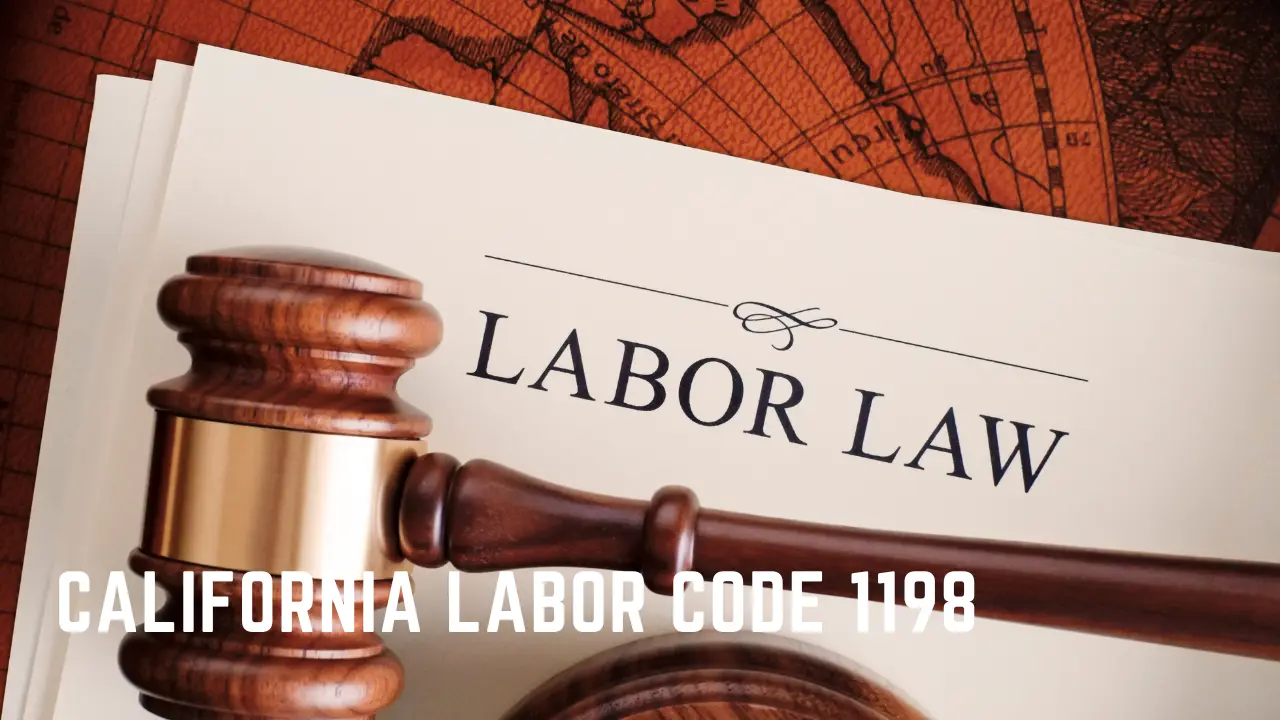Table of Contents
ToggleThe final paycheck encompasses not only the regular salary but also includes unused paid time off and vacation time, both of which are treated as wages and paid out at the regular rate. Non-adherence to these regulations can lead to significant penalties, thus emphasizing the importance of a comprehensive understanding of such labor laws.
In the ensuing discourse, we will dissect Labor Code 201, elucidating its implications, the legal framework that supports it, and the potential consequences of any failure to comply with it.
Labor Code 201: Understanding Final Paycheck in California
In understanding the complexities of final paycheck disbursement in California, it is paramount to grasp the legal mandates stipulated by the state’s labor codes. These laws assert an immediate obligation for employers to pay all earned and unpaid wages at the moment of an employee’s termination. The scope of ‘earned wages’ extends to unused vacation time, which must be compensated at the regular rate.
These laws are enshrined in California Labor Code 201 LC and further elaborated in related codes and legal precedents. Failure to adhere to these requirements can result in severe penalties, with employers owing daily wages for each day the final payment is delayed, up to a maximum of 30 days. This stringent regulation underscores the importance of prompt and full final wage payment.
Key Legal References and Framework
Navigating the labyrinth of legal references and labor codes is crucial for both employers and employees to ensure compliance with California’s strict final paycheck laws.
Primary in this legal framework is Labor Code 201, which mandates immediate payment for terminated employees. Other pertinent codes include §206, §1194, and §227.3, dealing with wage and hour regulations.
Particularly, §227.3 ensures pay for unused vacation time. Court cases, such as Mamika v. Barca and Vasquez v. San Miguel Produce Inc., have set precedents that interpret these laws.
Non-compliance can lead to penalties, as outlined in Labor Code 203. Understanding these legal references helps prevent labor disputes and provides a solid foundation for fair employment practices.
Regulations on Unused Vacation Payouts
Under California law, particular attention must be paid to the regulations regarding payouts for unused vacation time. This is considered as earned wages and is subject to immediate payment upon termination. The rule holds true irrespective of whether an employee resigns or is discharged.
Any failure to timely compensate for unused vacation time can lead to penalties, equivalent to the employee’s daily wage rate for up to 30 days. Employers cannot enforce a ‘use-it-or-lose-it’ policy under California Labor Code 227.3.
Moreover, the payout must be calculated at the employee’s final pay rate, regardless of when the vacation time was accrued. These regulations are designed to protect employee rights and prevent the unfair loss of earned benefits.
Legal Recourse for Delayed Paychecks
When an employer fails to provide a final paycheck in a timely manner as stipulated by California law, employees have several legal avenues to pursue. These include:
- Filing a wage claim with the California Labor Commissioner’s Office. This government agency can investigate claims and enforce the law against employers.
- Pursuing a private lawsuit against the employer. This can lead to recovery of unpaid wages, interest, and potentially attorney’s fees and costs.
- Seeking penalties under California Labor Code Section 203. This can amount to a full day’s wages for each day the payment is delayed, up to a maximum of 30 days.
- Reporting the violation to the California Department of Industrial Relations, which can result in fines for the employer.
- Utilizing union resources, if the employee is a member of a labor union, as they often provide legal assistance in such matters.
Final Pay Obligations for Employers
In the context of employment termination, employers bear significant responsibilities and legal obligations, particularly concerning the issuance of final paychecks to their departing employees. Under California Labor Code 201, employers must immediately provide the final paycheck, including compensation for unused paid time off. Seasonal employees have a 72-hour window for receipt of final pay.
Failure to comply can lead to penalties equating to regular wages for each day the payment is late, up to 30 days. Adherence to these laws is critical to avoid potential legal ramifications. In cases of non-compliance, employees have the right to file a wage claim or initiate a wage and hour lawsuit. Understanding and abiding by these obligations is essential for employers to maintain lawful practices.
Implications of Immediate Payment Laws
Given the stringent nature of California’s immediate payment laws, employers must carefully analyze their payroll processes to ensure compliance and avoid potential legal ramifications.
The implications of these laws are vast and can be quite serious:
- Failure to comply could result in hefty fines and legal penalties, damaging the company’s reputation and finances.
- Strict adherence to the laws may necessitate changes in payroll systems and procedures, potentially incurring additional costs.
- These laws underscore the importance of effective employee termination processes to ensure all dues are settled promptly.
- Employers must be diligent in calculating final pay, including unused vacation time, to avoid underpayment.
- The laws reinforce the rights of employees, reminding employers of their legal and ethical responsibilities towards their workforce.
Case Studies on Final Paychecks
Examining various case studies reveals critical insights into the complexities and nuances of processing final paychecks upon employment termination.
For instance, in the Mamika v. Barca case, the court emphasized the importance of timely payment, reinforcing the penalties for delays.
Similarly, in Vasquez v. San Miguel Produce, Inc., the court upheld the right of employees to receive payment for unused leave, setting a precedent for subsequent cases.
Furthermore, the McLean v. State of California case underscored the significance of understanding wage and hour laws, particularly for employers.
These cases collectively highlight the crucial role of adherence to Labor Code 201, the potential legal consequences of non-compliance, and the need for employers to thoroughly understand these regulations.
Compliance With Wage and Hour Laws
Navigating through the complexities of wage and hour laws, employers must ensure strict compliance to prevent costly legal disputes and penalties associated with the delay or omission of final paychecks. The landscape of compliance involves understanding relevant legislation, court precedents, and nuances of worker entitlements.
- Timely payment of final wages, including unused vacation time, is a legal requirement under California Labor Code 201.
- Non-compliance may lead to penalties, as stipulated in Labor Code 203.
- Relevant court judgments such as Mamika v. Barca and Vasquez v. San Miguel Produce, Inc. set important precedents.
- Employee’s right to file a wage claim or a lawsuit reinforces the need for prompt payment.
- Understanding and abiding by these laws is not just a legal mandate, but a moral duty towards employees.
Conclusion
In conclusion, Labor Code 201 is a crucial regulation in California, safeguarding employees’ rights to receive their full compensation promptly upon termination. It mandates immediate payment of earned and unpaid wages, including salary, unused paid time off, and vacation time.
Non-compliance can result in severe penalties. Both employers and employees must understand such legal obligations to ensure compliance, mitigate disputes, and protect their respective interests.
Legal recourse, such as filing claims with the California Labor Commissioner, is available for addressing violations.

